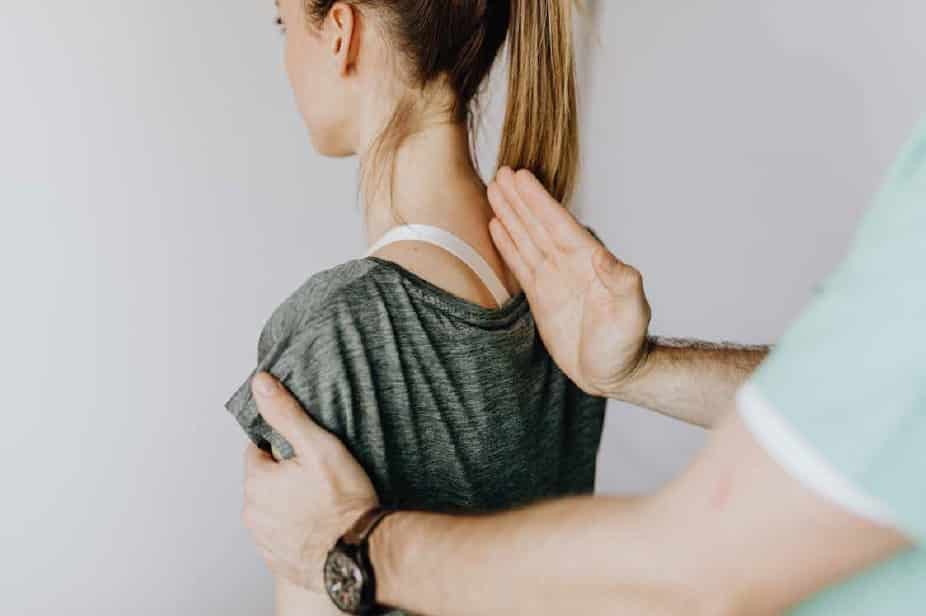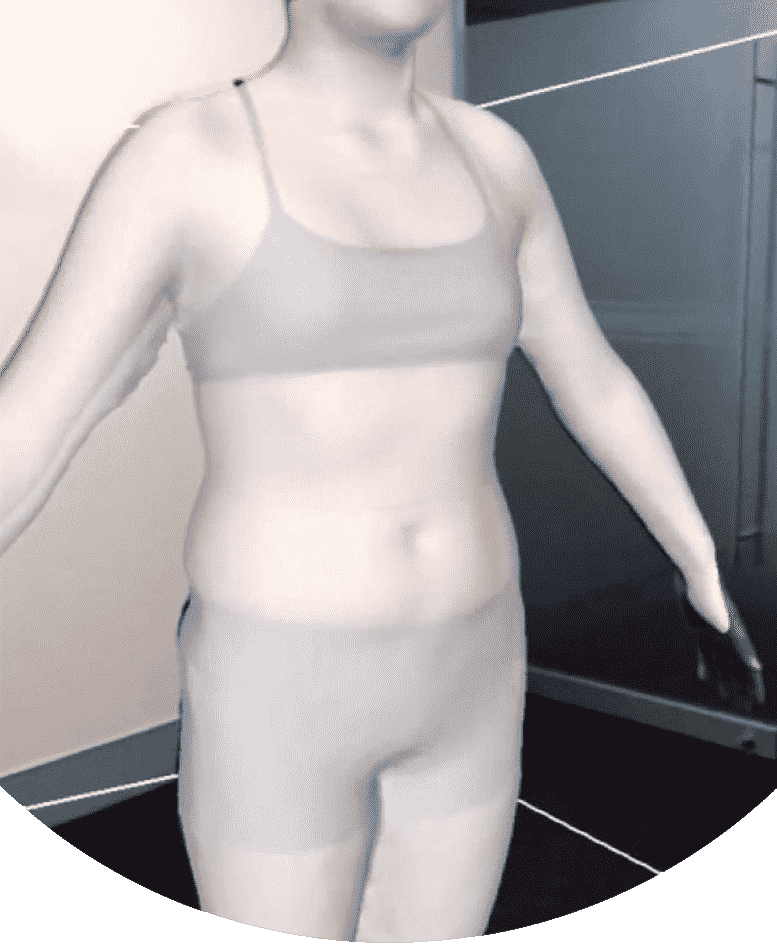3 March 2026
Understanding the Signs and Symptoms of Scoliosis
Early signs of scoliosis—like uneven shoulders or hips—can be subtle. Spotting them early boosts the chances of successful, proactive treatment.

There are a number of ‘warning signs’ to look for to indicate that perhaps you or someone you know has scoliosis. Use our guide to undertake an initial check. If you notice any one or more of these signs, you should consult a trained Scoliosis Clinician for a full assessment.
Research suggests that early intervention, with more active non-surgical treatments, can play an important role in treating scoliosis however there is no one size fits all solution. Choosing the right treatment for scoliosis relies on first being able to accurately assess and measure it.
Bracing has been used as an early intervention treatment for scoliosis for decades. There are many types of scoliosis braces ranging from soft dynamic braces to rigid over-corrective braces. ScoliCare uses 3D scanning technology to produce completely customized spinal braces for each patient.

Each case of scoliosis is unique and, depending on severity, age and mobility, treatment options need to adapt to the needs of the individual. This is why scoliosis treatment for teenagers varies from adult scoliosis treatment options.
The time of scoliosis diagnosis can be stressful for patients (as well as parents if your child has been diagnosed). There are certain things that every parent needs to know about scoliosis and for adult patients, this is a good time to gain a better understanding scoliosis. We are happy to discuss any concerns you have as we understand that providing in-depth information is key to moving forward with a successful treatment program.
If you would like to discuss your or your child’s personal case please feel free to contact us. We would be more than happy to answer any questions you may have about scoliosis treatment for yourself or your child. Alternatively, if you are at the start of your journey we can provide an overview of what a scoliosis assessment entails as well as the services we offer.
If you suspect that you have or your child has scoliosis, it is important to check as soon as possible to ensure you or your child receives the right treatment at the right time. There are certain ways to detect scoliosis, for example, firstly you could use ScoliCare’s free app called ScoliScreen to do a quick online check for risk factors. The next step is to make an appointment with a qualified Scoliosis Clinician to assess your individual situation and provide treatment options. Referrals are not required.
As one of the very few dedicated scoliosis clinic brands in the world, ScoliCare is committed to remaining at the global forefront of scoliosis assessment and non-surgical scoliosis treatment options. We often receive referrals from other health practitioners such as your doctor, chiropractor or physiotherapist and we can co-manage treatment.
Depending on the severity of the scoliosis, there are non-surgical scoliosis treatment options available. One method is scoliosis bracing which may prevent the curvature from worsening and potentially prevent the need for surgery. Another method is undertaking a scoliosis-specific exercise program, such as ScoliBalance, on its own or in conjunction with bracing.
As with all medical treatments, a scoliosis consultation is needed to ascertain the best possible approach for a successful outcome. Consideration is given to a patient’s age, where they are in their growth cycle, and their priorities e.g. an adult’s highest priority might be reducing pain. Should surgery be determined as the most appropriate treatment for you, we will refer you to a specialist scoliosis surgeon.
Generally, scoliosis surgery is reserved for spinal curvatures of more than 50 degrees or in cases where other treatments are not viable. We prefer to offer alternatives to surgery where possible to help patients with scoliosis. Depending on whether it’s an infant, juvenile, adolescent or adult presenting with scoliosis symptoms, the treatment options vary, depending on the severity of scoliosis.
We highly recommend a visit to one of our clinic or bracing Providers to discuss the appropriate treatment methods available to suit your diagnosis and lifestyle requirements. You may simply require scoliosis-specific exercises such as ScoliBalance, or it may be determined that you will benefit more from a scoliosis brace, or you may need both. In the event surgery is deemed appropriate we are here to guide you through the process by offering surgical referrals to our network of scoliosis surgeons. We will also assist you through the recovery stages.
Booking a consultation is the first step toward seeking effective treatment for scoliosis. During your consultation, we will conduct a postural assessment and organise a standing X-ray which will be used to determine the Cobb angle of your spine. We will also consider the probability of the scoliosis worsening over time, lifestyle factors/needs, age of the patient, and more. From here, we can begin to discuss the most effective scoliosis treatment, whether that is exercise or a brace, a combination of both, or surgery as a last resort.
The latest updates and news from ScoliCare
3 March 2026
Early signs of scoliosis—like uneven shoulders or hips—can be subtle. Spotting them early boosts the chances of successful, proactive treatment.
24 February 2026
Scoliosis is progressive and unique to each patient—early, customized treatment is key to preventing worsening and improving long-term quality of life.
17 February 2026
The thoracic spine’s natural kyphosis supports posture and function—but when excessive, it leads to hyperkyphosis, causing rounded shoulders and imbalance.
10 February 2026
Scoliosis is treatable, especially when caught early. Proactive care during growth helps reduce curve size, improve posture, and prevent progression.
In the USA and Canada, health professionals who do not meet the minimum qualifications to become a Certified ScoliBalance Provider may become a ScoliBalance Assistant allowing them to carry out ScoliBalance rehabilitation activities working under direct supervision of a Certified ScoliBalance Provider.
The below guidelines are applicable for a ScoliBalance Assistant:
Minimum level qualifications required to become a ScoliBalance Assistant include Physical Therapy Assistant Certification, Personal Trainer Certification, or Chiropractic Assistant Certification. If you have questions about whether you have the appropriate qualifications for becoming a ScoliBalance Assistant, please contact us at support@scolicare.com